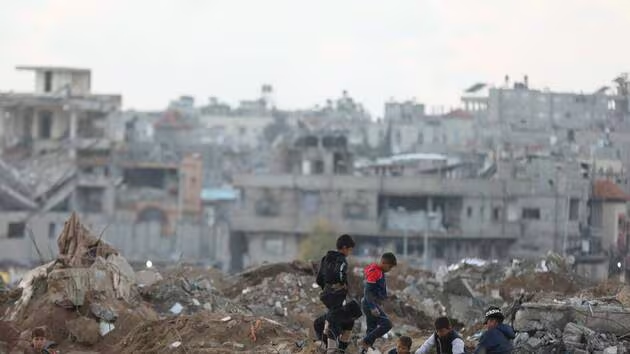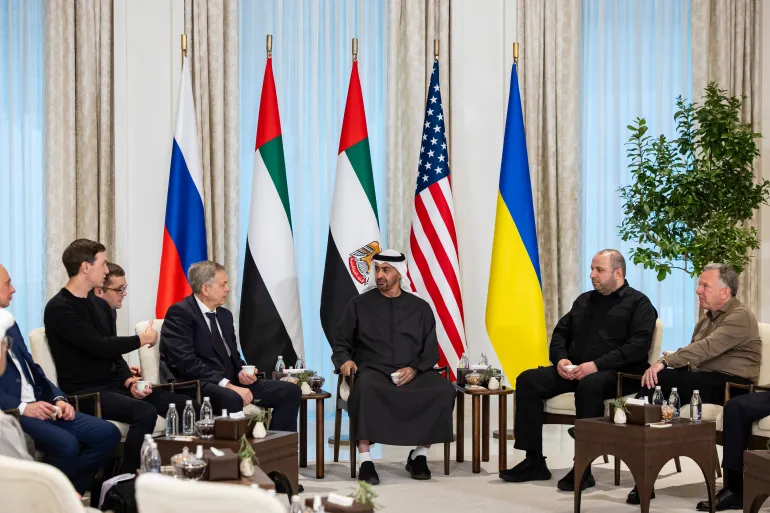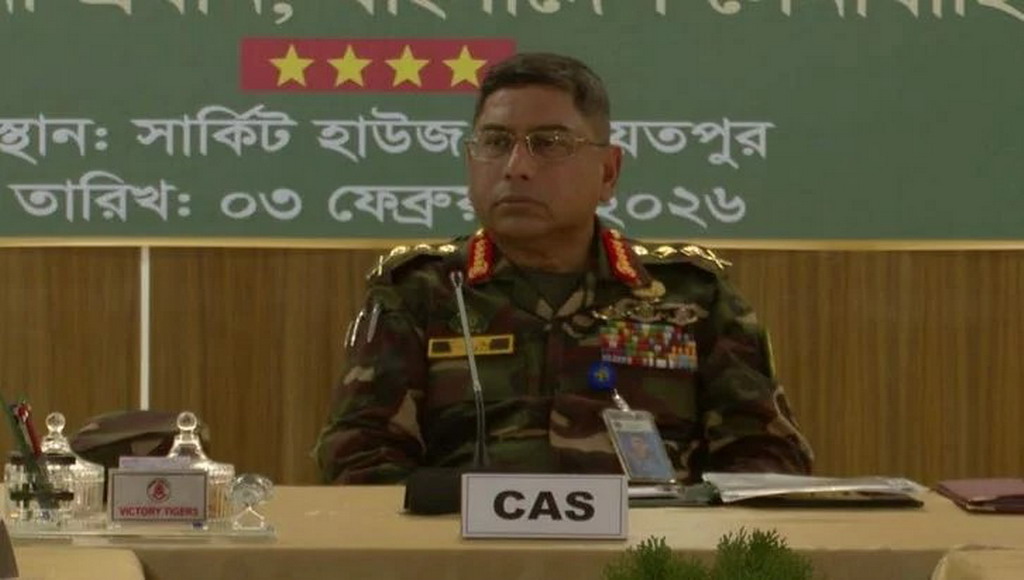.png)
Screengrab: X via @PdmapunjabO
WASHINGTON DC: Pakistan faces a critical challenge in balancing its $1.2 billion International Monetary Fund (IMF) aid with the urgent need for climate resilience, as experts urge a shift from short-term bailouts to long-term investments in flood defenses, early warning systems, and community-level adaptation.
The recent climatic changes faced by Pakistan, especially in the form of widespread flooding, have left it reeling from financial and social impacts.
The IMF recently reached an agreement with Pakistan to provide $1 billion under its Extended Fund Facility (EFF) and $200 million under its Resilience and Sustainability Facility (RSF) this week, bringing total disbursements under the two arrangements to about $3.3 billion up till now.
In its recently issued statement, the IMF highlighted the devastation caused by flash floods that impacted "7 million people, causing over 1,000 deaths and severely damaging" everything from housing to agricultural land, consequently bringing down the projected FY26 GDP to about 3¼ – 3½ percent.
Because the IMF deems Pakistan "vulnerable" to natural disasters, this has sparked a new debate on how to achieve "climate resilience."
Expenditure transparency
Climate change and economic experts view no single fix to this situation but rather look for a multi-pronged approach, starting with the right allocation of funds released under the RSF program.
Dr Abid Qaiyum Suleri, the executive director of the Pakistan-based think-tank, the Sustainable Development Policy Institute (SDPI), told Pakistan-TV Digital that to ensure expenditure transparency, "Each rupee should be tied to clearly defined resilience outcomes—such as improved flood protection, drought-resistant agriculture, or community-level adaptation projects—and implemented through provincial and district mechanisms that involve local stakeholders."
‘Ex-ante measures’
As a cash-strapped country, staying aligned with the conditions of the EFF loan program while managing the catastrophic climatic changes Pakistan is dealing with can be challenging.
But is there room for making arrangements ahead of a climatic event? Zainab Majoka, a social protection economist based in Washington and working with the World Bank, commented that it is hard to fix anything once the catastrophe has already hit.
"A delay of even a few hours can lead to huge losses of life." Therefore, for countries like Pakistan, which are increasingly vulnerable to climate shocks, there is a dire need to invest in "ex-ante measures," or measures implemented before the shock hits.
‘Switching the composition’
One such area is Early Warning Systems (EWS). Majoka added that EWS are integrated data systems designed to provide timely and actionable warnings of impending hazards.
"In the recent past, these data systems have improved significantly in their accuracy and can provide robust information in advance," creating a time window where the government can start planning before the shock hits.
The real question is whether Pakistan can allocate a major amount for such systems with proper checks and balances in place while availing the EFF, which comes with strings attached.
"Pakistan can expand climate adaptation and green infrastructure without breaching the EFF ceiling by switching the composition of spending rather than its size," summed up Dr Suleri.
‘Phasing out untargeted subsidies’
He suggested phasing out untargeted energy subsidies and bailouts; ring-fencing the savings for flood defenses, drainage, resilient roads, and water systems; pruning low-priority Public Sector Development Programme (PSDP) schemes; and lowering the priority of "discretionary" projects as steps in the right direction.
Majoka and Dr Suleri both emphasized the need to strengthen not just a sector but the "whole community" to face any untoward climatic incident.
The experts believe a shift from blanket price support to targeted cash via the Benazir Income Support Program (BISP) is one of the best measures to keep all "costs low."
The money to ensure that communities are built to face recent flooding-like situations can be procured by unwinding costly tax exemptions, bringing high-end real estate and retail into the revenue net, enforcing provincial agriculture-income taxation, and introducing a modest carbon levy with part of the yield earmarked for adaptation.
Livelihood diversification
Majoka also advocated for providing easy access to safety nets, such as income support programs already helping vulnerable and poor households, which can further build resilience against shocks. In Pakistan, "Benazir Income Support Program can be leveraged for that."
She seconded Dr Suleri on this point. Such programs can be complemented with other measures such as livelihood diversification, where a household has multiple sources of income.
"We know from evidence that such programs also help to cope with climate shocks."
RSF as ‘strategic anchor’
According to Dr Suleri, Pakistan can use the IMF’s RSF as a strategic anchor for a long-term climate-resilient growth model rather than a short-term disaster fund.
To do so, the government should align RSF-supported reforms with a broader green industrial strategy: one that links climate adaptation with competitiveness, investment, and jobs.
This means embedding resilience criteria into all infrastructure planning, incentivizing green energy and water-efficient industries, and setting measurable national targets for emission reduction and resource efficiency.
But a long-term planning approach should be taken into account for that timely access to resources and money is a key element guaranteeing preparedness against disasters.
Contingency financing
Contingency financing is another tool that many Latin American countries are already using to achieve this goal, Majoka said.
"Contingency financing can take many forms, but it essentially means that the government has access to liquid funds. So, instead of once the shock hits, the government starts to look for money, it already knows that certain triggers are set linked to the contingency financing."
In countries such as Chile, Colombia, and Mexico, they have catastrophe bonds that provide liquidity as soon as the shock hits.
This improves the timeliness of the response and reduces the overall cost of recovery and relief.
Even with all the appropriate and necessary steps taken, the IMF views that "maintaining tight and data-dependent monetary policy will go a long way to build resilience against climatic changes that are rapidly changing the geo-economic structure of Pakistan."
Latest News
Gaza civil defense says death toll from Israeli strikes rose to 17
4 HOURS AGO

Putin tells Xi Moscow-Beijing alliance 'stabilizing' for world
4 HOURS AGO
.jpg)
Iran formally allows women to ride motorcycles
4 HOURS AGO
.jpg)
Ukraine delegation arrives in UAE for Russia talks
5 HOURS AGO

Bangladesh army chief calls for neutrality ahead of 2026 general election
5 HOURS AGO


.jpg)